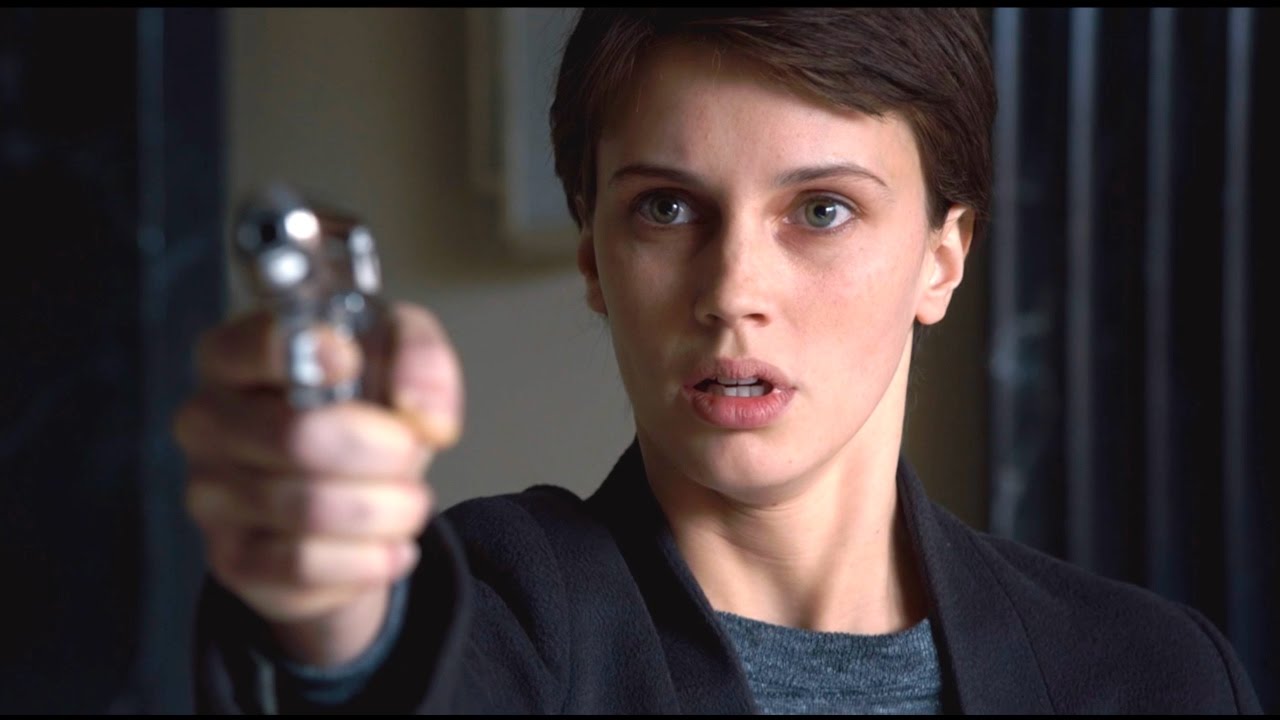
DOUBLE LOVER (L’amant double)
Cohen Media Group
Director: François Ozon
Screenwriter: François Ozon, loosely based on Joyce Carol Oates’ “Lives of the Twins”
Cast: Marine Vacth, Jéremié Renier, Jacqueline Bisset, Myriam Boyer, Dominique Reymond
Screened at: Critics’ link, NYC, 1/10/18
Opens: February 14, 2018
In middle-class households, the favorite question that family friends and relatives ask of children is “What do you want to be when you grow up?” In the early years, fireman, policeman, astronaut. Later on events occur in youthful lives that coax them into becoming neurologists (they had a history of headaches), optometrists (they wore glasses from age 5), and best of all, psychiatrists (they have a history of emotional problems). In fact it’s sometimes said that psychoanalysts are more disturbed than their patients, and this is the likely reason.
“Double Lover,” based loosely on Joyce Carol Oats’ erotic thriller “Lives of the Twins,’ is about two such psychotherapists, twin brothers, in fact, who ply their trade with radically different ideologies. One is the mild-mannered Paul Meyer (Jérémie Renner); the other a wacko! Rougher, Paul’s more physically direct twin Louis Delord (Jérémie Renner again!—but forget that there’s any symbolism in the latter’s name though patients often make the mistake of thinking that their shrinks are gods.)
Paris-born writer-director François Ozon is well known among cineastes for “8 Women,” about the search by these folks for a murderer among them, an Agatha-Christie style movie quite a bit tamer than his current work. In fact this time Ozon wants to break through his typical fare, much as the principal character of “Double Lover” seeks to punch through her obsessions and repressions. At the same time Ozon is having fun with the cineastes, challenging them to recall movies with similar themes such as “Rosemary’s Baby” (some bizarre neighbors seem to have plans for the upcoming infant), “Dead Ringers” (twin gynecologists have run challenging women to guess who’s who), and even “50 Shades of Gray” (a co-ed gets more than she bargained for with her new boss).
Here’s the thing about “Double Love.” It’s probably as incoherent and unrealistic as the Oates novel from which is loosely adapted. But it makes the audience work to deconstruct the plot, wondering how many of the principal character’s fantasies are real. And it’s filled with style, style, style; and when a film succeeds in doing what movies can do best, which is to avoid telling a story in too literal a way, we’ve got to allow the director to afford the filmmaker a loose leash over the material.
Ozon’s focus is on Chloé (Marine Vacth), done with her modeling career, shown in dramatic closeup getting her locks cut and transforming her into a pixie-like beauty. She goes to doctors complaining about stomach pains—somehow the physicians neglect to give her an ultrasound or CT-scan—and is told what all of us would-be patients hate to hear: “It’s all in your head.” She nods, agreeing to see Dr. Paul Meyer (Jérémie Renner), a psychiatrist, the sort who frustrates patients by talking little, not even the traditional “How does it make you feel?” When Meyer falls in love with her, he is ethical: he wants to refer her to another, ending his therapy. With this therapy over, they discover mutual attraction: she moves with her cat Milo into his spacious Paris apartment.
The piece de résistance: she discovers an old passport with his picture but with a different name: Delord. As a museum attendant, a hideously dull job for a pretty, educated woman, she has time to look up Louis Delord, discovering that he is Paul’s identical twin, born 15 minutes after Meyer. She soon finds that Delord’s methodology is quite different from Meyer’s. Whereas Meyer ethically stopped therapy because of his attraction, Delord uses the attraction to engage in rough sex with Chloé, who is at first repelled, then returning, obsessed.
Some plot details are one thing, but like reading classic comics and thinking that you know all there is to know about “War and Peace,” you may find that plot takes a backstage turn in favor of Ozon’s stylistic agenda. With the first analyst, she sits facing him. In the next shot, they’re inches apart as though about to kiss. Then she looks at the two in the mirror. At one point she is having sex with both psychoanalysts at once—or is she? The threesome becomes a foursome, as she miraculously doubles (but you already knew that this would happen from the movie’s title). In one of the most intimate shots you see in movies, Ozon takes a few seconds to show the ululations of the vagina in orgasm, and in stark closeup.
You’d think that Ozon prides himself in being able to write about women, one of the many male fantasies such as that skill actually possessed by Jack Nicholson’s character Melvin Udall in James L. Brooks’ “As Good as it Gets.” Ozon also re-introduces one of his favorite motifs, the impossibility of knowing someone else no matter how intimate you may be with that person. (In fact the real problem is our inability to know much about ourselves, which drives us into psychotherapy.)
The director is more playful now than he was in his more serious, classic films like “Under the Sand,” “Frantz,” and “Criminal Lovers.” Now in his 51st year, having used his skills and art to make forty films, he’s entitled to have fun, n’est-ce pas?
Unrated. 107 minutes. © 2018 by Harvey Karten, Member, New York Film Critics Online
Story – B
Acting – B
Technical – A-
Overall – B+
, or





